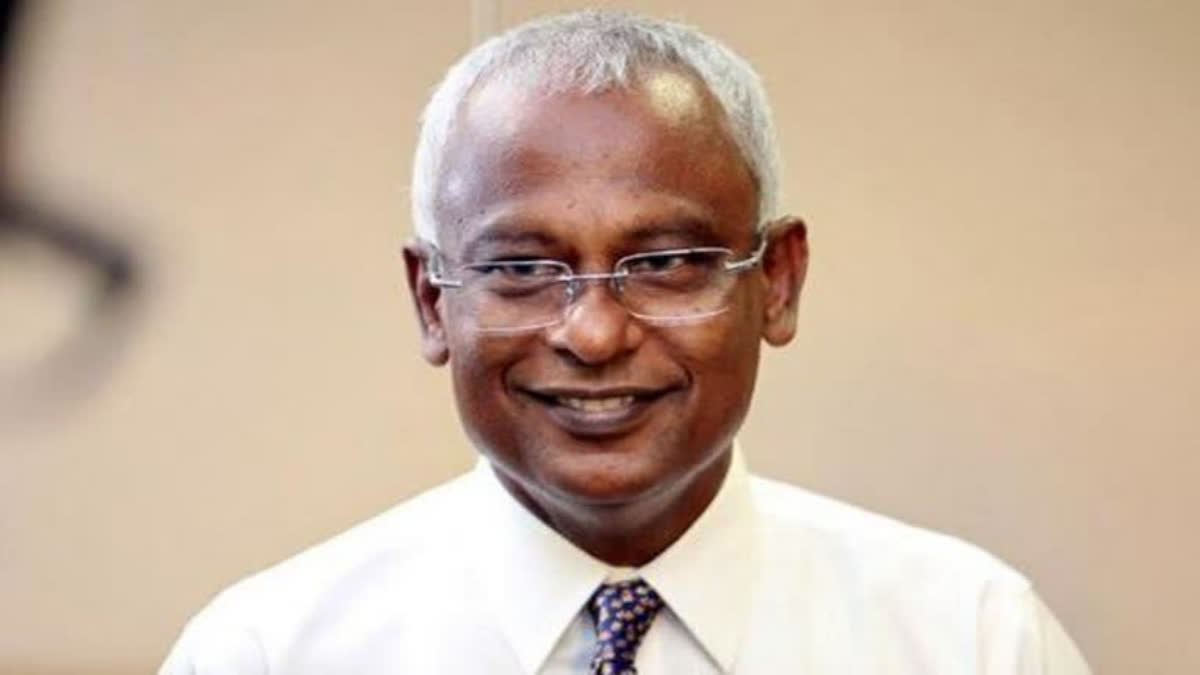New Delhi: With Opposition candidate Mohamed Muizzu taking the lead over incumbent President Ibrahim Solih in the first round of the Maldives presidential election, there will be cause for worry in the power corridors of New Delhi.
With none of the eight candidates in the fray securing 50 per cent of the vote, the presidential election is headed for a run-off between Solih and Muizzu on September 30. Following polling in the first round held on September 9, Muizzu garnered 46.06 per cent of the votes while Solih got 39.05 per cent. A run-off is required when none of the candidates gets 50 per cent of the votes.
Muizzu, who is the Mayor of the Maldives’ capital Male, is the joint candidate of the People’s National Congress (PNC) and the Progressive Party of Maldives (PPM). Initially, former President Abdulla Yameen of the PPM, known for his pro-China stance, was nominated as the joint candidate of the PNC and the PPM. But since Yameen is serving an 11-year jail term due to a money laundering case, he became ineligible to contest the election. As a result, Muizzu of the PNC was nominated as the joint PNC-PPM candidate.
Solih, who is very pro-India, is the leader of the ruling Maldivian Democratic Party (MDP). He qualified to contest the election after defeating former President Mohamed Nasheed in the MDP primaries in January this year. A few months after his defeat in the primaries, Nasheed parted ways with Solih, a childhood friend, and floated a new party called The Democrats. Nasheed, who is also known for his pro-India stance, then put up Ilyas Labeeb as The Democrats’ candidate against incumbent President Solih. Labeeb, however, could garner only 7.18 per cent of the votes in the first round.
With Muizzu taking the lead in the first round, the presidential run-off scheduled for September 30 will keep India on its toes. As part of New Delhi’s Neighbourhood First Policy, the Maldives is strategically significant to India because of its location in the Indian Ocean. India and Maldives share ethnic, linguistic, cultural, religious and commercial links steeped in antiquity and enjoy close, cordial and multi-dimensional relations. However, regime instability in the Maldives since 2008 has posed significant challenges to the India-Maldives relationship, particularly in the political and strategic spheres.
Ties between India and the Maldives deteriorated significantly when Yameen served as the President between 2013 and 2018. It was only after Solih came to power in 2018 that ties between New Delhi and Male improved.
Although India continues to be an important partner of the Maldives, New Delhi cannot afford to be complacent over its position and must remain attentive to the developments in the Maldives. India must play a key role within the Indo-Pacific security space to ensure regional security in South Asia and surrounding maritime boundaries. China’s strategic footprint in India’s neighbourhood has increased. The Maldives has emerged as an important 'pearl' in China’s “String of Pearls” construct in South Asia.
“Muizzi has taken a lead that is quite substantial,” Anand Kumar, Associate Fellow in the Manohar Parrikar Institute of Defence Studies and Analyses and author of a book on the Maldives, told ETV Bharat. “For any dramatic change now, Nasheed should contain his ambitions and support Solih,” Kumar said. “Both of them should take the support of smaller parties.”
